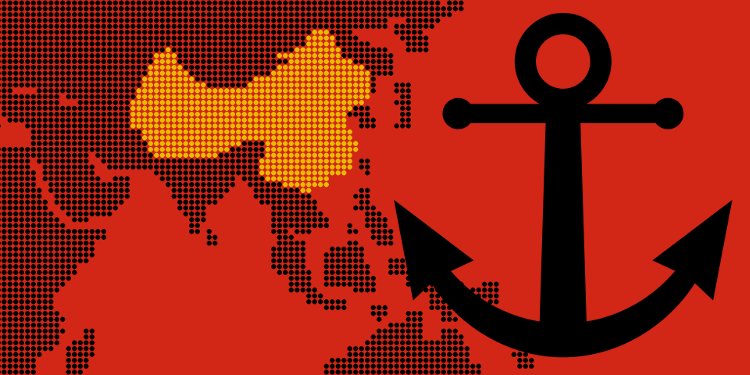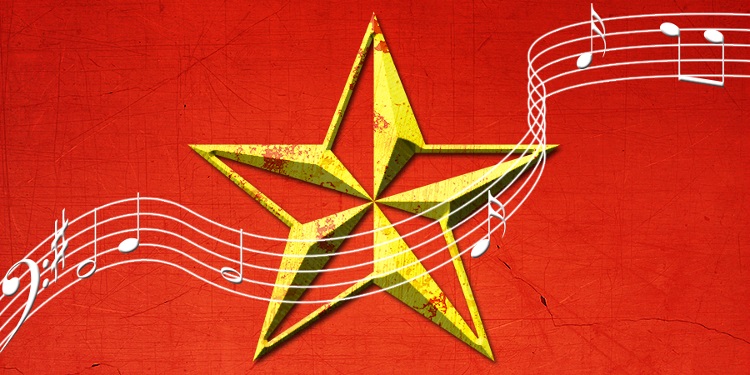China launches new free trade zones, Shanghai won’t relax. Britain doubts Buffet’s ‘too big to fail’-ness. More warnings of financial trouble from Fed circles. The US wants more money for Ukraine. Hillary wants more money for families. Cumo visits Cubanos, not Castros. A new ‘Clear’ app in time for election season—politically correct your Tweets. Bonus: Bitcoin Vs. Wall Street: A Love-Hate Story · · · →
Showing all posts tagged China
Cadence of Conflict: Asia, April 20, 2015

China’s economy is getting “worserer and worserer”. Their progress seems to have been hyped. Then again, that could be said of everyone. Banking is all over the news—all over. But the real reasons for such economic conflict and shuffling between West and East remains unsaid. The US is spread too thin. Taiwan is focusing on military. And Japan is focusing on ISIS. Banking doesn’t seem like much news… Then again, maybe the excess of worldwide headlines about banking should be very big news in itself. Maybe the headlines aren’t as excessive as the iceberg beneath the surface.
China
China ‘suspends until further notice’ bank technology restrictions opposed by the US
…Indicating the real reason for China’s new bank?
…And a great excuse for the West to leave China, which already seems to be happening…
China’s incredible shrinking factories
…Taiwanese are pulling out of the Mainland.
HSBC speeds up exit from emerging markets
…More bank pulling and shifting
China GDP growth lowest since 2009
…And the Premiere is even talking about it…
Downward pressure on China’s economy ‘increasing’, admits premier
We Traveled Across China and Returned Terrified for the Economy
…Notice in the video, he says that “it” is good in the long term, though he never clarifies what “it” is. · · · →
Cadence of Conflict: Asia, April 13, 2015

China’s new bank (AIIB, Asian Infrastructure Investment Bank) dominated headlines this week. AIIB’s history suggests China wants infrastructure money without being told to clean up the environment, respect human rights, or play nice with their hope-to-be soon-to-be-annexed neighbors. The US could have jumped-in and controlled AIIB, but didn’t, as if the US anticipates that AIIB may lose money after, say, a conflict in the Pacific.
The bank seems to be a line in the sand for US allies in the Pacific, but not so much in Europe. The Internet is flooded with articles claiming that China won’t control their own bank, some of which Cadence has too much dignity to link to. Does hiring Westerners to run the Chinese bank make it less “Chinese”? Beijing marketing departments might think so.
Isn’t it interesting that China is creating a bank for infrastructure while, at the same time, China is building up their military to knock-out existing infrastructure in places like Taiwan? All this Pacific infrastructure talk smells a little “fishy”, as it were. China wants to invest. The US doesn’t. The bank controversy may not be about politics, but about money—gambling on who will get a return on their investment after… “something” happens and “someone” wins.
China is building up in the Pacific and the US isn’t afraid to say so, especially to Taiwan. Taiwan made more great poses for the camera with the US, which China won’t like. Taiwan is rolling out a new political party, which the Establishment won’t like.
Chinese corruption and the environment crossed swords this week. No one seems to have asked why China has so much corruption. The answer would likely be that strong households maintain themselves first, while those who think more about their neighbors often leave the own homes in disrepair.
Chinese and Western press exchanges drew a little more attention than normal this week. We see a pattern in both press and policy: Poke at China and they spill their beans; oppose China from abroad and they try to annex you, “by force if necessary”. Michael Cole deserves a medal for getting a Chinese general to give away more of Beijing’s intentions, this time with classy Beijing graphics, though the Pacific Daily Times doesn’t exactly share a coterminous opinion on Israel; we like Israel at the Times. But Michael is as informed as he is thought provoking—and good at provoking the PLA into revealing strategy. With ISIS on the move so much that even Japan is watching, we all might come around to appreciating Israel for standing in their way.
What makes a nation aggressive? Will China give up its claim to the map if the good guys erase themselves from it? An academic blog article encourages the US to infiltrate China’s new bank, claiming that the US is partially to blame for its creation. While joining China’s AIIB might be a good idea—had war on the horizon not made it a risky investment for the Yanks—China didn’t create that AIIB bank because of lack of control in the IMF.
Obama’s election wouldn’t make Al Sharpton complain less nor would Israel’s annihilation suddenly make ISIS stop burning people alive. Limbaugh predicted it: Obama’s election preceded a spike in ethnic tension in America. ISIS is angry that they don’t already control Europe because Israel is in their way. If China controlled the IMF, the AIIB would already be open for business. And if China acquired Taiwan, Beijing would soon publish genealogical claims to Tokyo, and why not Jerusalem and Tehran too?
Top Stories
Britain’s Support for China’s AIIB Means Japan, Parroting the U.S., Is Trapped
…Old, but shows the controversy surfacing.
US reports on Chinese naval threat to Taiwan
“Friction between China and its neighbors appears increasingly likely as Beijing seeks to deter rival activities and assert its own claimed rights and interests.”
The Great Chinese Lie About Taiwan
…From J Michael Cole on China and the controversy *See more under Taiwan
Retired PLA General responds to J Michael Cole
…Photo of a Chinese General’s backlash against Cole (in his Chinese article) *See more under Taiwan
Territorial Claims in the South China Sea
…NY Times maps from 2012, informative
Cadence of Conflict: Asia, April 7, 2015

When viewing China as a corporate conglomerate attempting a hostile takeover, with the goal of complete market monopoly in every sector, Asia’s conflict only starts to make sense. But the problem goes deeper. According to credible, anonymous reports, there are “mental health conditions” that are frequent in Chinese-Asian culture.
Specifically is the belief that, “If another individual does not join our group (family, organization, business, club, etc.) or otherwise comply with our unilateral demands, then that other individual is proactively and maliciously attempting to change our group’s destiny. Then, our only option is to either dominate that other individual at all costs, even at the expense of our own goals and/or survival, and to sever all communication except communication for us to achieve our ‘unchangeable destiny’, which is for that individual to join or obey us one way or another.” Because of the adamantine, unabashed, and costly determination to hold to this kind of belief, this recurring belief may be an ideal candidate for a clinically-certifiable personality disorder. Read More
Cadence of Conflict: Asia, March 30, 2015

China continues to takeover the Pacific with ships and reclaimed reefs. Taiwan’s DPP continues to knock down statues of KMT-Nationalist leader Chiang Kai-shek, which further indicates that Taiwan’s popularity favors national sovereignty. The same sympathy continues to slant in Hong Kong. China inaugurates its controversial flight M503, seven kilometers from Taiwan’s airspace, the Taiwanese aren’t happy about it, and the KMT-Nationalists and Communist Chinese aren’t happy that they aren’t happy. A lot of people in the Pacific aren’t happy. Read More
Prelude to Conflict: Asia, March 23, 2015

The conflict is already here. As it seems, China always planned to invade Taiwan and upset the teetering Pacific balance. Myanmar and India won’t have any more. Declassified notes (last week) suggest China was lying about their intentions with Hong Kong since 1958 and Thatcher knew this in her confidential talks with Beijing in the 1980’s. The “economic” rout to taking over Taiwan seems only a way to bide time so that Beijing’s military could grow stronger and, thus, their invasion would be more likely to succeed. Economics were never a “first option”, but only a ploy.
Analysts who buy into to the “by fore if necessary” rhetoric could say that China’s “economic option” (AKA a ‘hostile takeover’) with Taiwan was “wishful thinking” or an “either way” approach. Through economic ties, so it could be said, Beijing could cripple Taiwan before the invasion. Thus, Taiwan could always cave, “but if not”, Beijing would be in a better position. · · · →
